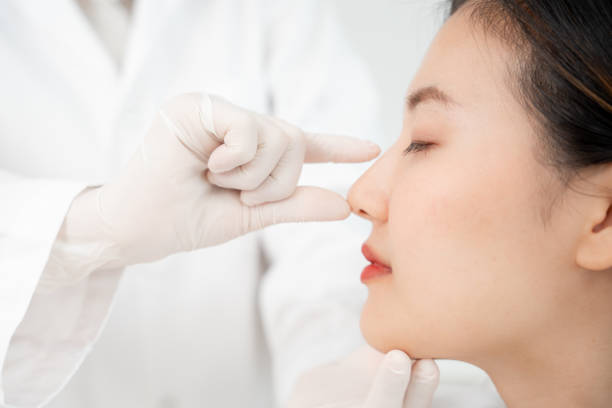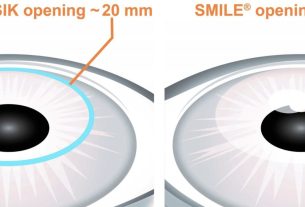If you’re considering plastic surgery, it’s important to understand that the recovery process is just as important as the procedure itself. Proper healing can mean the difference between a successful outcome and potential complications. Whether you’re getting a facelift, breast augmentation, or tummy tuck, there are steps you can take to ensure a smooth recovery.
One of the most important things you can do is to follow your surgeon’s post-operative instructions. These instructions are tailored to your specific procedure and are designed to promote healing and reduce the risk of complications. They may include things like avoiding certain activities, taking medication as prescribed, and wearing compression garments. It’s important to follow these instructions closely to ensure the best possible outcome. To ensure you are in the hands of trusted professionals who will provide clear and personalized post-operative care instructions, it’s crucial to choose the right surgeon. If you’re seeking highly qualified surgeons for your procedure, Click Here to explore options and find the best fit for your needs.
Page Contents
Preparing for Plastic Surgery
Before undergoing plastic surgery, it is important to prepare yourself both physically and mentally. Here are some tips to help you get ready for your procedure.
Understanding the Procedure
The first step in preparing for plastic surgery is to fully understand the procedure you will be undergoing. This includes understanding the risks and potential complications associated with the surgery, as well as the expected outcome. Be sure to ask your surgeon any questions you may have and discuss any concerns you may be experiencing.
Pre-Surgery Checklist
To ensure a smooth recovery, it is important to follow a pre-surgery checklist. Here are some things you can do to prepare for your procedure:
- Stop smoking: Smoking can slow down the healing process and increase the risk of complications. If you smoke, it is important to quit at least two weeks before your surgery.
- Avoid certain medications: Certain medications, such as aspirin and ibuprofen, can increase the risk of bleeding during and after surgery. Be sure to discuss all medications you are taking with your surgeon and follow their instructions.
- Arrange for transportation: You will not be able to drive yourself home after surgery, so it is important to arrange for transportation in advance.
- Prepare your home: Before your surgery, make sure your home is clean and organized. Stock up on essentials, such as food and toiletries, and create a comfortable recovery area.
- Follow pre-surgery instructions: Your surgeon will provide you with specific instructions to follow before your surgery. Be sure to follow these instructions carefully to ensure a smooth recovery.
By following these tips and preparing yourself for your plastic surgery procedure, you can help ensure a smooth recovery and achieve the best possible results.
Post-Surgery Recovery and Care
After undergoing plastic surgery, it is crucial to take care of yourself during the recovery period to ensure a smooth healing process. Here are some essential tips for post-surgery recovery and care:
Immediate Post-Operative Care
Immediately after the surgery, your surgeon will provide you with specific instructions to follow. It is crucial to follow these instructions closely to avoid complications and ensure proper healing. You may need to take medications, apply ice packs, and keep the surgical area elevated to reduce swelling.
Managing Pain and Discomfort
Pain and discomfort are common after plastic surgery. Your surgeon may prescribe pain medications or recommend over-the-counter pain relievers to manage the discomfort. You can also use ice packs and heat pads to reduce swelling and discomfort. However, it is important to avoid taking any medication without consulting your surgeon first.
Reducing Downtime and Risks
To reduce downtime and risks, it is crucial to follow your surgeon’s instructions carefully. Avoid strenuous activities, including exercise and heavy lifting, for several weeks after the surgery. It is also important to avoid smoking and alcohol consumption during the recovery period, as they can slow down the healing process and increase the risk of complications.
Long-Term Healing and Care
The healing process after plastic surgery can take several weeks or months, depending on the type of procedure you underwent. It is crucial to follow your surgeon’s instructions for long-term healing and care, including proper wound care, scar management, and follow-up appointments. You may also need to make lifestyle changes, such as maintaining a healthy diet and exercise routine, to ensure optimal healing and long-term results.
By following these post-surgery recovery and care tips, you can reduce downtime, minimize complications, and ensure a smooth healing process. Remember to consult your surgeon if you have any concerns or questions during the recovery period.
Also Read=Health Benefits of Cycling and Comfortable Bike Saddle
Frequently Asked Questions
What are the best ways to facilitate a faster recovery following plastic surgery?
To facilitate a faster recovery after plastic surgery, it is important to follow your surgeon’s post-operative care instructions. This may include getting plenty of rest, avoiding strenuous physical activity, and taking any prescribed medications as directed. Additionally, maintaining a healthy diet and staying hydrated can help support your body’s healing process.
What essentials should be included in a plastic surgery recovery kit?
A plastic surgery recovery kit should include items such as loose, comfortable clothing, ice packs, and over-the-counter pain relievers. Your surgeon may also recommend specific products, such as scar creams or compression garments, to aid in your recovery.
Can you provide tips for effective post-operative care after undergoing plastic surgery?
Effective post-operative care after plastic surgery involves following your surgeon’s instructions closely, attending all follow-up appointments, and reporting any unusual symptoms or concerns promptly. It is also important to avoid smoking and limit alcohol consumption during the healing process.
What are the most challenging cosmetic procedures to recover from in terms of pain and healing time?
The most challenging cosmetic procedures to recover from in terms of pain and healing time vary depending on the individual and the specific procedure performed. However, procedures such as tummy tucks, facelifts, and breast augmentations often require a longer recovery period and may cause more discomfort than other procedures.
What activities and substances should be avoided during the plastic surgery healing period?
During the plastic surgery healing period, it is important to avoid activities that may strain the surgical area, such as heavy lifting or vigorous exercise. Smoking and alcohol consumption should also be avoided, as they can slow the healing process and increase the risk of complications.
Is it safe to consume caffeine during the recovery process from plastic surgery?
While moderate caffeine consumption is generally safe during the plastic surgery recovery process, it is important to consult with your surgeon before consuming any caffeine or other substances. Some medications and supplements may interact with caffeine, and excessive caffeine consumption can interfere with sleep and hydration, which are important for the healing process.



